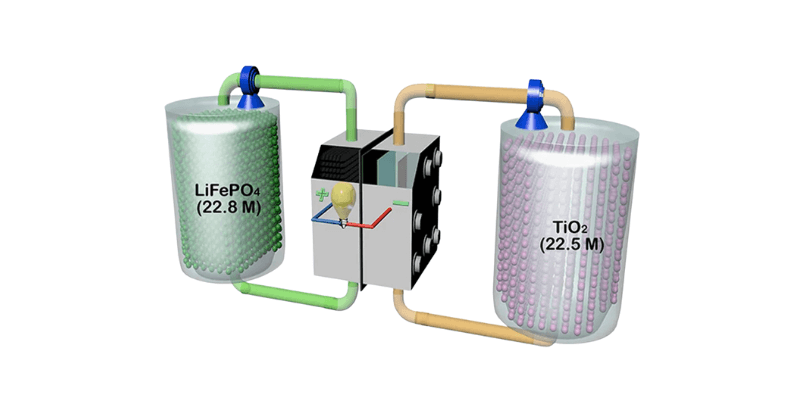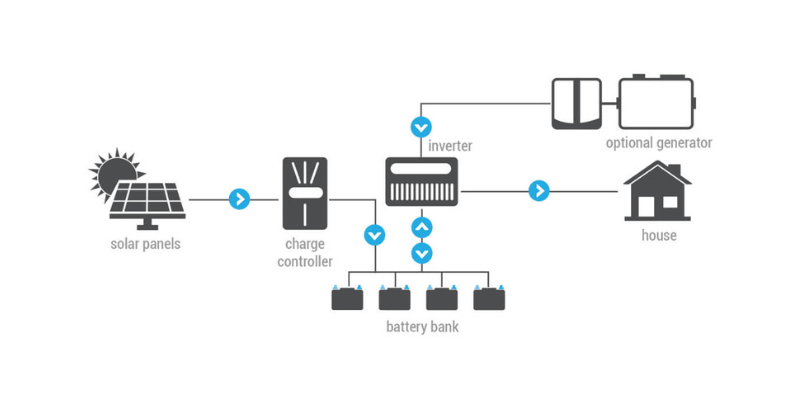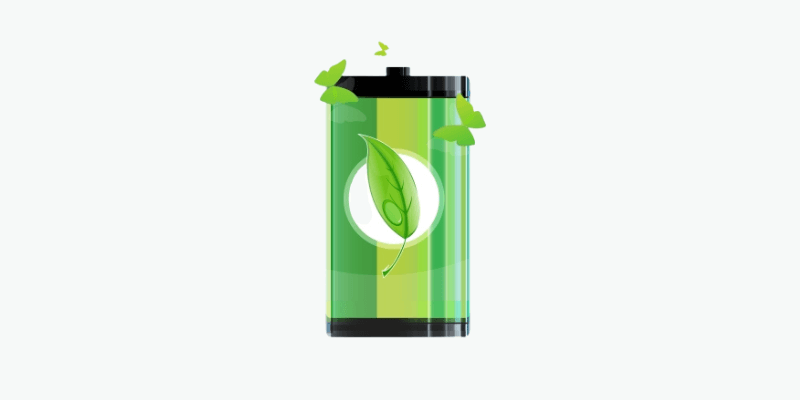İklim krizi dönüştü “çevre dostu piller” Bir pazarlama teriminden önemli bir teknolojik zorunluluğa.
Orman yangınları öfke ve deniz seviyeleri arttıkça temizleyici talebi enerji depolama arttı. 2024'te elektrikli araç satışları rekor seviyelere ulaştı ve şebeke dışı evler ve yenilenebilir ızgaralar gelişmiş pillere daha fazla güveniyor.
Maliyet etkinliği ve malzeme tedariki ile ilgili zorluklara rağmen, endüstri liderleri yüksek performanslı sürdürülebilir piller yaratmayı amaçlıyor, bu da yeşil teknolojinin hem güçlü hem de kullanışlı olabileceğini kanıtlıyor.
Çevre dostu piller nelerdir?
Çevre dostu piller, kaynak kullanımını azaltarak, sera gazlarını keserek ve tehlikeli atıkları kontrol ederek gezegene nazik olmaya odaklanır. Sürdürülebilir malzemelerle yapılan enerji verimliliğini artırır ve geri dönüşümü basitleştirirler.
Üç tür vardır: lityum iyon, katı hal ve akış pilleri.
Lityum-iyon piller, sürdürülebilirlik ve performans dengesi, yüksek enerji yoğunluğu Hafif bir çerçevede ve daha uzun ömürlü. Hızlı şarj ve düşük kendi kendine deşarj oranlarına sahip elektrikli araçlara ve yenilenebilir sistemlere güç veriyorlar.
Katı hal lityum-iyon piller, katı elektrolitler kullanır ve öngörmek için yanıcı olmazken daha sürdürülebilir malzemelere izin verir termal kaçak.
Dış tanklarda depolanan sıvı elektrolitlerle akış lityum iyon piller, ölçeklenebilirlik sağlar, ancak karmaşıklıkları nedeniyle daha düşük enerji yoğunluğuna ve daha yüksek üretim maliyetlerine sahiptir.

Çevre dostu piller% 100 sürdürülebilir mi?
Bugün hiçbir pil tamamen sürdürülebilir değil, zorluklar devam ediyor:
- Kaynak Çıkarma: Lityum Madenciliği Ton cevher başına 500, galon su kullanır, ekosistemleri bozurken, çatışma bölgelerindeki kobalt madenciliği insan hakları sorunlarını gündeme getirir.
- Geri Dönüşüm Boşlukları: Lityum iyon pillerin sadece% 5'i geri dönüştürülür, bu da kaynak atıklarına ve toprak kirlenmesine neden olur.
- Enerji yoğun imalat: Pil üretimi büyük ölçüde fosil yakıtlara dayanır ve artan cO₂ emisyonları.
Ancak ilerleme kaydediyoruz! Çevre dostu piller geleneksel olanlardan çok daha iyidir. Sera gazlarını azaltır, kaynakları daha verimli kullanırlar ve sürdürülebilir bir enerji geleceğine katkıda bulunan geri dönüşüm seçenekleri sunarlar.
Lityum-iyon piller, daha yeşil enerji için özellikle önemlidir, çünkü ticari kullanım için pratik ve verimlidirler.
Ayrıca, bu piller için geri dönüşüm işlemi önemli ölçüde iyileşmiştir. Aqua Metals gibi şirketler, temiz ve uygun maliyetli olan su bazlı geri dönüşüm sistemleri geliştiriyor ve kapalı döngü geri dönüşümünü sürdürülebilir pil üretiminin temel bir bileşeni haline getiriyor.
Temizleyici ve daha yeşil pillere çözüm
Sürdürülebilirlik zorlaması yeniliği vurgular. Lityum iyon gibi çevre dostu piller potansiyele sahiptir, ancak iyileştirmeye ihtiyaç duyar. Şirketler, kalite kontrolleri yoluyla güvenlik sağlayarak üretimi daha temiz ve daha az savurgan hale getirerek enerji depolamasını geliştirmek için en iyisini dener.
Büyük oyuncular daha uzun ömürlü ve daha az hammadde ile lityum iyon piller geliştiriyorlar. Örneğin, Holo Batter, 3.000-6.000 döngü ile seçenekler sunar. Geri dönüşüm sistemlerinin güçlendirilmesi, ev elektroniklerini, RV'leri, motorlu tekneleri, yelkenli tekneleri ve şebeke dışı ev sahiplerini güçlendirebilen bu pillerin çevresel ayak izini büyük ölçüde azaltır.

Çözüm
Lityum iyon piller şu anda sürdürülebilirlik ve performansı dengelemek için tercih edilen seçimdir. Hammaddeler konusunda mükemmel olmasa da, en iyi üreticiler çevresel etkilerini azaltmaya çalışıyorlar.
Yüksek kaliteli ürünler seçerek, kaynak kullanımı ve üretim etkilerini en aza indirmeye yardımcı olan daha uzun ömürlü pillerden yararlanırsınız.
Holo Pil, üstün, sürdürülebilir lityum iyon seçenekleri yaratmaya yol açar. Çevre dostu çözümlerimiz maceralarınızı güçlendirir ve uzun vadede güvenilir şebeke dışı depolama sağlar. Ayrıca, hafif ve dayanıklı pillerimiz ömür boyu teknoloji desteği ile birlikte gelir. Bize Ulaşın Yeşil güç çözümlerimiz hakkında daha fazla bilgi edinmek için.


